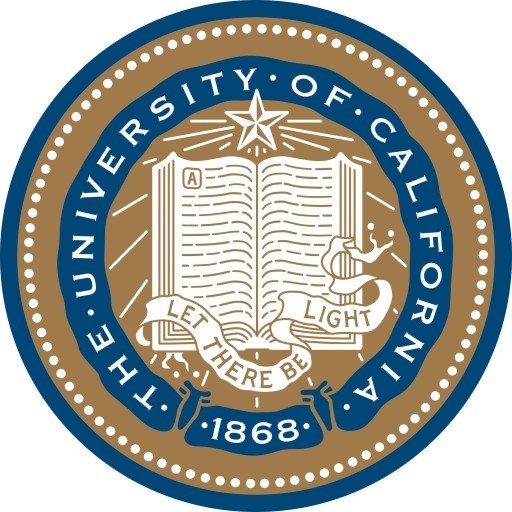Photos of university / #ucsc
The Department of Biomolecular Engineering is an interdisciplinary department that combines expertise from biology, mathematics, chemistry, computer science, and engineering to train students and develop technologies to address major problems at the forefront of biomedical and bio-industrial research. Students trained in the Department of Biomolecular Engineering can look forward to careers in academia, the information and biotechnology industries, public health, or medical sciences.
The department offers an undergraduate minor and a bachelor of science (B.S.) degree in bioinformatics, and graduate master of science (M.S.) and doctor of philosophy (Ph.D.) degrees in biomolecular engineering and bioinformatics. The department co-sponsors the B.S. in bioengineering program, described elsewhere in this catalog, with the departments of Computer Engineering, Electrical Engineering, and Molecular, Cell, and Developmental (MCD) Biology. The department co-sponsors the Program in Biomedical Science and Engineering (PBSE), a doctoral training program, with the departments of MCD Biology, Chemistry and Biochemistry, and Microbiology and Environmental Toxicology.
Departmental faculty advise undergraduate and graduate researchers enrolled in the bioinformatics, bioengineering, and related degree programs. Members of the Department of Biomolecular Engineering actively collaborate with faculty from other Baskin School of Engineering departments, such as Applied Mathematics and Statistics, Computer Engineering, Computer Science, and Electrical Engineering; and with the Physical and Biological Sciences departments of MCD Biology, Chemistry and Biochemistry, Microbiology and Environmental Toxicology, Ecology and Evolutionary Biology, and Ocean Sciences.
Both masters and doctoral students must complete seven, 5-credit courses and one 3-credit research and teaching course. In addition, M.S. students must complete three seminar courses, while Ph.D. students must complete five seminar courses. M.S. students must also complete one independent study (course 297), and Ph.D. students must complete three research laboratory rotations (course 296) with different supervisors. Lab rotations for Ph.D. students are generally completed in the first two quarters (three 7-week rotations). Ph.D students must also complete one 3-credit scientific writing course in their second year.
Core courses (5-credit) six are required
Bioinformatics Emphasis
-
BME 205, Bioinformatics Models and Algorithms
-
Two Biomolecular Engineering graduate courses from the bioinformatics list
-
One Biomolecular Engineering graduate course from the biomolecular engineering list
-
One graduate statistics course (Applied Mathematics and Statistics 206B recommended)
-
One graduate course from MCD Biology, Chemistry and Biochemistry, or Microbiology and Environmental Toxicology
Biomolecular Engineering Emphasis
-
Two Biomolecular Engineering graduate course from the biomolecular engineering list
-
One Biomolecular Engineering graduate courses from the bioinformatics list
-
Two graduate courses from Applied Mathematics and Statistics, MCD Biology, Chemistry and Biochemistry, or Microbiology and Environmental Toxicology
Ethics Course (5-credit) one is required
-
*BME 80G, Bioethics in the Twenty-First Century: Science, Business, and Society
-
Sociology 268A, Science and Justice: Experiments in Collaboration.
*BME 80G can be taken to meet the ethics requirement, however, the credits will not be counted toward the overall credit requirement for the M.S. or Ph.D. since it is a lower-division course.
Electives
No electives are required. However, with faculty guidance students often choose to take upper-division undergraduate courses or graduate courses outside the department to make up for deficiencies in background areas of particular importance.
With consent of the graduate director, variations in the composition of the required courses may be approved.
Other Curriculum Requirements
- BME 200, Research and Teaching in Bioinformatics, 3 credits
Seminars
M.S. students: a minimum of three seminar courses, including at least one quarter of the 2-credit Biomolecular Engineering seminar, 280B
Research Experience
M.S. students: one quarter of independent study (BME 297).
Course Lists
The following are the bioinformatics and biomolecular engineering course lists. The lists are subject to change as courses and course content changes. The graduate office maintains the current list.
- Bioinformatics list: 205, 211, 230, 235
- Biomolecular Engineering list: 215, 233, 255
Masters Capstone Requirement
M.S. students must complete a one-quarter research project with written report to fulfill the capstone requirement. In consultation with the faculty adviser, the student forms a Master’s Capstone Reading Committee of at least two faculty members (including the adviser), each of whom is provided a copy of the project report. The final project report must be signed by the reading committee before the award of the Master of Science Degree.
Requirements
- Transcripts. You may upload a scanned copy of your unofficial transcripts to your online application, or send official copies to the Graduate Application Processing address
- Statement of Purpose. Recommended length is a concise 2-4 pages, single-spaced.
- The Personal History Statement is required of all applicants.This statement will be used in conjunction with your application for graduate admission and financial support. Please note that the Personal History Statement should not duplicate the Statement of Purpose.
- A résumé is required for some applications and optional for others.
- All recommendation letters are required to be submitted electronically through the online application. You must register a minimum of three recommenders, and as many as five, via the Recommendations page of the online application.
- The application fee for the 2016-17 academic year is $105 for domestic applicants and $125 for international applicants. This fee can be paid by credit card or e-check (the e-check option is only available if you have a U.S. bank account).
- Official GRE scores must be sent from the Educational Testing Service (ETS) to UC Santa Cruz, School Code 4860 (no department code necessary). Official scores must be received prior to the application deadline.
- If you are a non-native English speaker you will be required to take an English language competency exam. UC Santa Cruz accepts the TOEFL or IELTS test. Official scores must also be sent from the testing service to UC Santa Cruz, School Code 4860
Scholarships
- Regents Fellowships. A limited number of these fellowships are awarded to first-year graduate students in master's and doctoral programs. These awards provide a stipend and/or payment of university fees except non-resident tuition.
- Global Education







